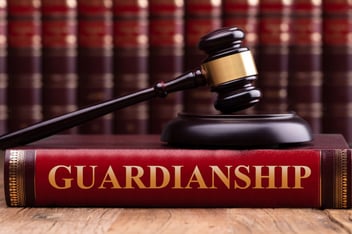Guardianships: A Last Resort

A guardianship is a court-ordered relationship established to protect a person who is no longer capable of handling their financial or personal affairs.
There is good and bad news with guardianships. The bad news is they are expensive to set up and maintain and usually emotionally difficult for the families involved. The good news is that, in most cases, they can be avoided.
In Texas, there are two kinds of guardianship: guardianship of the person and guardianship of the estate. A guardian of the person makes medical and living decisions. A guardian of the estate makes financial decisions.
The first line of defense against the need for guardianship is a durable financial power of attorney and a medical power of attorney. These two documents will give the agent or agents named in them the authority to make financial, medical, and other personal decisions for you.
If you have financial and medical powers of attorney and become incapacitated, in many cases, there will be no need for court-supervised guardianship. Both documents are inexpensive to prepare and can save a family literally thousands of dollars in guardianship expenses.
You only need guardianship if you become incapacitated and there is no planning or the planning you have in place fails. There are three facts and situations that could cause your planning to fail.
Failure of Agents. The most likely reason for a failure is the inability or unwillingness of an agent to serve. You can guard against this by regularly reviewing and updating your documents when necessary. If an agent has died, become incapacitated, moved away, or your relationship with the agent has deteriorated, you need to redo the power of attorney and name someone else.
Rogue Agent. An agent might act in the agent’s self-interest rather than yours or simply not act at all when you need help. If you have other family members who can monitor your situation, this can reduce the possibility of an agent going rogue, and, if necessary, petitioning for guardianship to protect you. As costly as guardianship can be, it is a better alternative than having an agent steal or misuse your funds.
Your Actions. Remember that a power of attorney gives your agent the authority to act for you but does not remove your ability to continue to make decisions when you are not capable. If you make decisions harmful to your well-being and will not accept that you need to stop, guardianship may be needed to protect you from yourself.
Preparing powers of attorney cannot guarantee you will not need guardianship; however, if you become incapacitated and you do not have a financial and medical power of attorney, guardianship will probably be required.



